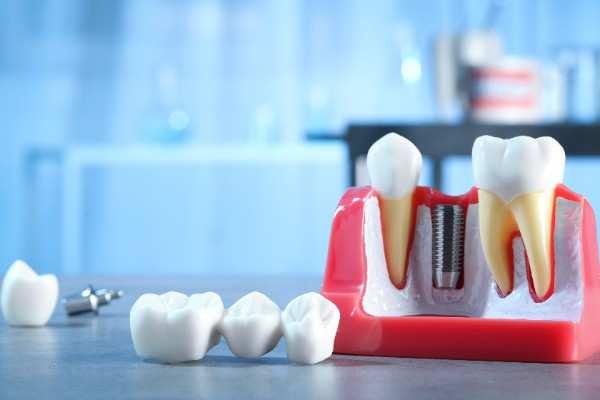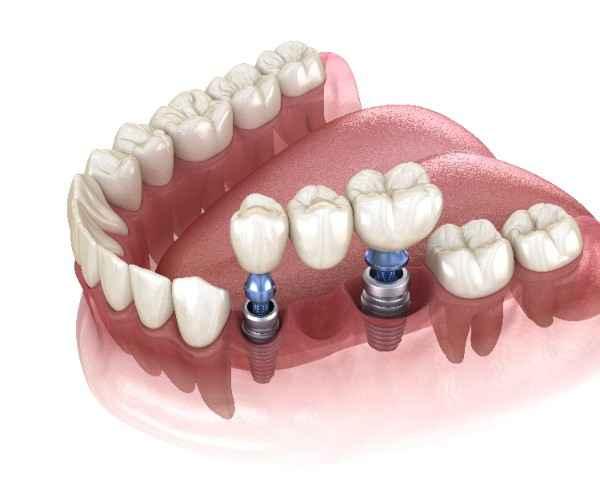Dental implants are widely regarded as the gold standard for replacing missing teeth. They offer a permanent solution that looks and functions like natural teeth, allowing patients to eat, speak, and smile with confidence. However, certain health conditions and lifestyle factors, such as smoking and diabetes, can influence the success of dental implant procedures. It is important for patients to understand the risks and take the necessary precautions to ensure a successful outcome.
Dental implants involve inserting a titanium post into the jawbone, which serves as an artificial tooth root. This post fuses with the bone through a process called osseointegration, providing a stable foundation for a crown that replicates the appearance of a natural tooth.
How Smoking Affects Dental Implant Success
Smoking is one of the most significant lifestyle factors that can impact dental implant outcomes. Nicotine and other chemicals in cigarettes restrict blood flow to the gums and bone, slowing the body’s natural healing process. Reduced circulation can delay the integration of the implant with the bone, increasing the risk of failure.
- Higher risk of implant failure: Research shows that smokers are more likely to experience complications with dental implants compared to non-smokers.
- Slower healing: Restricted blood flow can prolong recovery time and cause more discomfort post-surgery.
- Increased gum disease risk: Smoking weakens the immune system and increases susceptibility to peri-implantitis, an infection that can affect the gums and the implant itself.
Quitting smoking, even temporarily around the time of implant surgery, can significantly improve the chances of a successful procedure. Dental professionals often advise patients to stop smoking several weeks before and after surgery to enhance healing and reduce the likelihood of complications.

Diabetes and Its Impact on Dental Implants
Diabetes is another condition that can affect dental Implant Shrewsbury success. High blood sugar levels, especially if poorly controlled, can interfere with the body’s ability to heal and fight infection. This can have a direct impact on the osseointegration process, potentially compromising the stability of the implant.
- Controlled diabetes improves outcomes: Patients who maintain stable blood sugar levels are generally better candidates for dental implants.
- Higher risk of infection: Poorly managed diabetes can weaken the immune system, making it easier for bacteria to cause infections at the implant site.
- Slower bone healing: Diabetes can slow bone regeneration, which may prolong the time needed for the implant to integrate with the jawbone.
Regular monitoring of blood sugar levels, both before and after surgery, is crucial for diabetic patients considering dental implants. Working closely with healthcare providers ensures that the patient’s diabetes is under control, reducing the risk of complications.
Lifestyle Adjustments to Improve Implant Success
Certain lifestyle modifications can make a significant difference in the success of dental implants, particularly for smokers and diabetic patients.
- Maintain excellent oral hygiene, including thorough brushing, flossing, and using an antibacterial mouth rinse.
- Eat a balanced diet rich in calcium, vitamin D, and other nutrients that support bone health and healing.
- Follow all post-operative instructions provided by the dental team and attend regular check-ups to monitor healing and implant integration.
For smokers, reducing or quitting smoking is one of the most effective ways to improve the success of dental implants. Diabetic patients should focus on keeping blood sugar levels within the recommended range. Both groups benefit from maintaining good oral hygiene and regular professional dental care to prevent complications.
Who Is a Suitable Candidate?
Although smoking and diabetes can pose challenges, many patients in these categories are still eligible for dental implants. A thorough assessment by a dental professional is essential. This includes reviewing medical history, lifestyle habits, and evaluating the jawbone’s health and density. Advanced imaging techniques, such as 3D scans, allow dentists to plan the procedure precisely and anticipate any potential complications.
In some cases, additional treatments may be required to ensure the long-term success of dental implants. Bone grafting may be recommended for patients with insufficient jawbone density, while periodontal treatment may be necessary for patients with gum disease. With proper planning and care, even smokers and diabetic patients can achieve excellent outcomes with dental implants.
| Patient Factor | Considerations for Dental Implants | Recommended Approach |
| Smoker | Higher risk of implant failure and slower healing | Temporary smoking cessation & monitoring |
| Diabetes (controlled) | Slower healing, higher infection risk | Blood sugar management & tailored care plan |
| Diabetes (uncontrolled) | Higher risk of complications and implant failure | Recommend stabilising diabetes before surgery |
| Bone density issues | May require bone grafting | 3D imaging and customised surgical planning |
| Oral hygiene habits | Affect implant longevity | Patient education & ongoing maintenance |
The Role of Professional Guidance
Selecting an experienced dental clinic is crucial to achieving a successful implant outcome. Clinics offering comprehensive assessments, advanced imaging, and personalised treatment plans can significantly reduce the risk of complications.
For patients facing unexpected issues or discomfort during the dental implant process, access to prompt care is essential. Consulting an emergency dentist in Shrewsbury ensures that any problems are addressed quickly, preventing further complications and safeguarding the implant’s success. Professional guidance throughout the procedure from consultation to post-operative care can make a significant difference in both short-term recovery and long-term implant stability.
Video link : Permanent Solutions for Missing Teeth with Dental Implants
Post-Operative Care for Optimal Implant Success
Proper care after dental implant surgery is essential for both smokers and diabetic patients to ensure successful healing and long-term stability. Following a structured post-operative routine reduces the risk of infection, promotes bone integration, and helps prevent complications such as peri-implantitis.
Patients should follow their dentist’s instructions carefully, including taking prescribed medications and attending follow-up appointments. Maintaining excellent oral hygiene is crucial brushing gently around the implant site, using an antibacterial mouthwash, and avoiding hard or sticky foods in the initial weeks. Smoking should be avoided during the healing period, as it can impair blood flow and delay recovery. Diabetic patients should continue to monitor blood sugar levels closely, as fluctuations can affect the body’s ability to heal and fight infection.

Conclusion
Dental implants offer a reliable solution for missing teeth, even for patients who smoke or have diabetes. While these factors may increase the risk of complications, they do not automatically rule out treatment. By making lifestyle adjustments, maintaining good oral hygiene, and working closely with healthcare professionals, patients can achieve successful dental implant outcomes. Residents seeking dental implant Shrewsbury services can benefit from expert planning, personalised care, and ongoing support throughout the treatment process. At EDS, every patient receives guidance tailored to their unique needs, ensuring both safety and satisfaction with their new smile.



